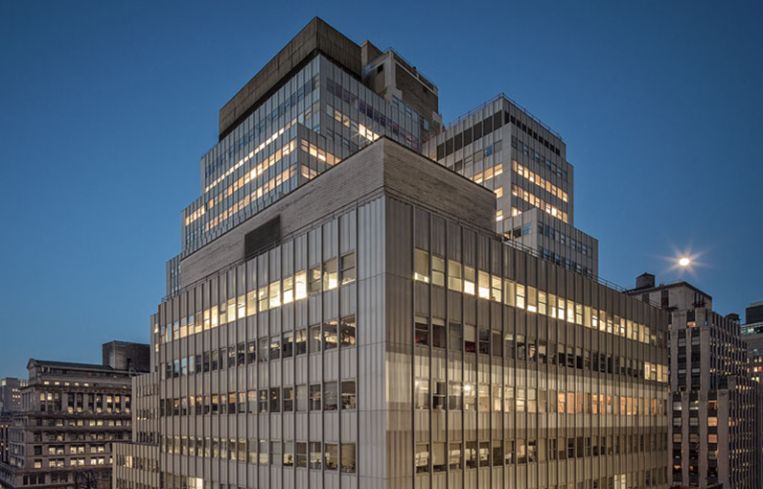Savanna and Pacific Oak Default on 110 William Street Loan
By Mark Hallum August 22, 2022 2:01 pm
reprints
Savanna and Pacific Oak Capital have defaulted on a loan for 110 William Street in the Financial District with negotiations with the lender underway.
Pacific Oak filed a disclosure with the Securities and Exchange Commission last week disclosing that an unnamed lender informed them of the default on June 16 and that negotiations for an extension were ongoing, The Real Deal first reported. It was likely a line of credit of $349 million secured from Invesco Real Estate three years ago.
The default has no bearing on the joint venture’s future ownership of the building with an extension currently in the works, according to a source with knowledge of the deal, and those negotiations are expected to close shortly. Pacific Oak was required to file the disclosure as an SEC requirement regardless of the outcome of the extension talks.
Pacific Oak owns a majority stake in the building with its investment balance at $85 million.
Savanna, Pacific Oak and Invesco did not immediately respond to a request for comment.
The default came after a number of tenants left the building, including the New York City Housing Development Corporation which signed a new lease for 109,000 square feet in the landmarked 120 Broadway, not far from the agency’s current 110 William headquarters.
But any notion of a pandemic related exodus from the building might be dispelled by the New York City Economic Development Corporation deciding all the way back in 2016 that it would start looking for a new office away from 110 William Street, later settling on 220,000 square feet at One Liberty Plaza, The Real Deal reported in 2017.
While the two aforementioned relocations were within the neighborhood, the Financial District has been at the losing end of a flight to quality trend with companies investing in Class A space near major transit hubs in Midtown, especially newer assets.
By June, office space in FiDi towers such as 55 Broad Street, owned by Silverstein Properties, was planned for conversion into 571 residential units after buying the property from Rudin Management for $180 million a month prior.
But while the Financial District has been losing on the office front, it may be gaining on the residential front.
Basha Gerhards, the senior vice president for planning at the Real Estate Board of New York, told Commercial Observer in January that this trend started after 9/11 with help from a rezoning and the 421-g tax abatement.
Mark Hallum can be reached at mhallum@commercialobserver.com.



